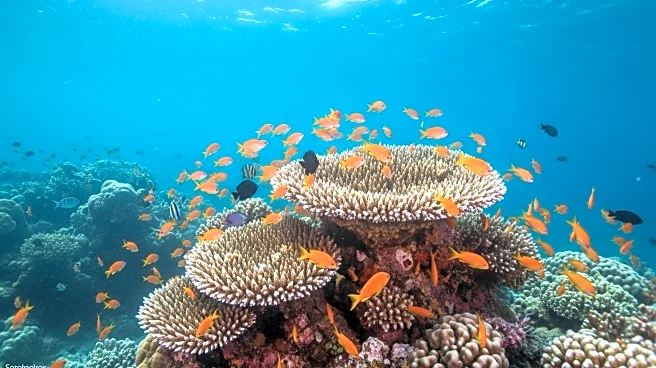What's Happening?
Several nations, including Canada, Australia, Japan, Denmark, and the European Union, have expressed concern over China's plan to establish a nature reserve at Scarborough Shoal. This area is within the Philippines' Exclusive Economic Zone, and the move is seen as undermining international law and threatening regional stability in the South China Sea. Diplomatic statements highlight the potential impact on Filipino fishers' access to traditional fishing grounds, referencing the 2016 arbitral tribunal ruling that supports Filipino rights in the area. The Canadian Embassy emphasized the importance of marine ecosystem protection but rejected using environmental protection as a means to control disputed territories. Similar concerns were echoed by ambassadors from Australia, Denmark, Japan, and the EU, all urging adherence to international law and peaceful resolution of disputes.
Why It's Important?
The establishment of a nature reserve by China at Scarborough Shoal could significantly impact regional geopolitics and the livelihoods of Filipino fishermen. The shoal has been a crucial resource for small-scale fishermen, and China's control since 2012 has already restricted access. The international community's opposition highlights the broader implications for sovereignty and maritime rights in the South China Sea, a region with ongoing territorial disputes. The U.S. has also voiced opposition, indicating potential diplomatic tensions and the need for multilateral dialogue to address these issues. The situation underscores the importance of international law in resolving territorial disputes and maintaining regional stability.
What's Next?
The international community is likely to continue monitoring China's actions at Scarborough Shoal, with potential diplomatic engagements to address the concerns raised. The Philippines may seek further support from allies to uphold the 2016 tribunal ruling and protect its maritime rights. The situation could lead to increased diplomatic efforts to ensure compliance with international law and prevent unilateral actions that alter the status quo. Stakeholders, including regional governments and international organizations, may push for dialogue and negotiations to resolve the dispute peacefully.
Beyond the Headlines
The controversy over Scarborough Shoal reflects broader geopolitical tensions in the South China Sea, where multiple countries have competing claims. The situation raises ethical questions about environmental conservation being used as a tool for territorial control. It also highlights the challenges faced by small-scale fishermen who depend on these waters for their livelihoods. Long-term implications could include shifts in regional alliances and strategies to address maritime disputes, emphasizing the need for sustainable and equitable solutions.








